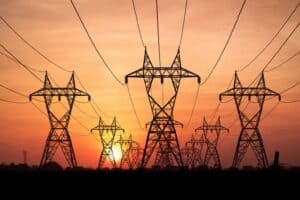'These are, sadly, schemes used for data mining and scrapping.'

When the great scientist, Isaac Newton (1642-1747), declared “What goes up must come down”, he could not have foreseen that WhatsApp would also come down, occasionally.
When WhatsApp malfunctioned on Monday afternoon, communication between councillors and officials was severely affected.
We have become dependent on WhatsApp. Each of the city’s seven regions and various depots operates differently, but WhatsApp is a common denominator. In Region B, stretching from Coronationville in the west to Sandhurst in the east, we have separate WhatsApp groups for Joburg Water, City Power depots, and JMPD, among others.
Issues logged by residents are posted on these groups by councillors asking for attention and feedback. Although this is an improvement from pre-WhatsApp days, communication remains inadequate.
On some days, we might be grateful for receiving a cursory response, “noted”. When depots are overloaded and understaffed, as Hursthill City Power has been since last week’s storm, communication becomes more difficult.
Swamped by 1 000 calls, shift team leaders struggle to cope when they have only six teams at their disposal.
Some residents sit for days without electricity, begging for information which is not always forthcoming.
The backlog was significantly reduced by the time Whatsapp crashed worldwide.
However, while the WhatsApp silence was welcomed by some, it also left customers even more in the dark.
Communication is one of the city’s biggest failures. People enduring outages will put up with a lot of inconvenience if they receive a plausible explanation and at least an estimated time frame.
But to have zero feedback is not right. The temporary WhatsApp vacuum again exposed the lack of an efficient, reliable call centre (or call centres) for the city.
Residents needing help on Monday night found their options reduced.
WhatsApp technology has offered wonderful opportunities to improve communication, but these have not been used to best effect for the benefit of customers.
WhatsApp has been a boon for information sharing among councillors. There is so much one should know in order to do this job properly.
WhatsApp allows us to compare notes, exchange news and views easily and conveniently. So it was a relief when the service returned. Geeks and conspiracy theorists are having a great time explaining what went wrong at Facebook, WhatsApp, Instagram, etc.
Be sceptical about the many “only a genius can do this” tests, random inane quizzes, surveys, etc that proliferate on Facebook. Most are obviously data-harvesting exercises. But if you say so, or indeed type anything in response to
the prompt, you run the risk of your personal data being collected.
Now such data on more than 1.5 billion people is apparently being offered for sale on hacker forums. Cybersecurity expert Miklos Zoltan, chief executive of Privacy Affairs, says you should “never enter random quizzes, surveys, or games on Facebook unless offered by a known and verified publisher”.
“Almost always, these are, sadly, schemes used for data mining and scrapping”.
He recommends Facebook users should not set their accounts to be fully public.
What goes up on Facebook must go down the dark alleys of information theft. It’s not Newtonian physics. Gravity still sucks – but Zuckerberg is in another league.
Support Local Journalism
Add The Citizen as a Preferred Source on Google and follow us on Google News to see more of our trusted reporting in Google News and Top Stories.






